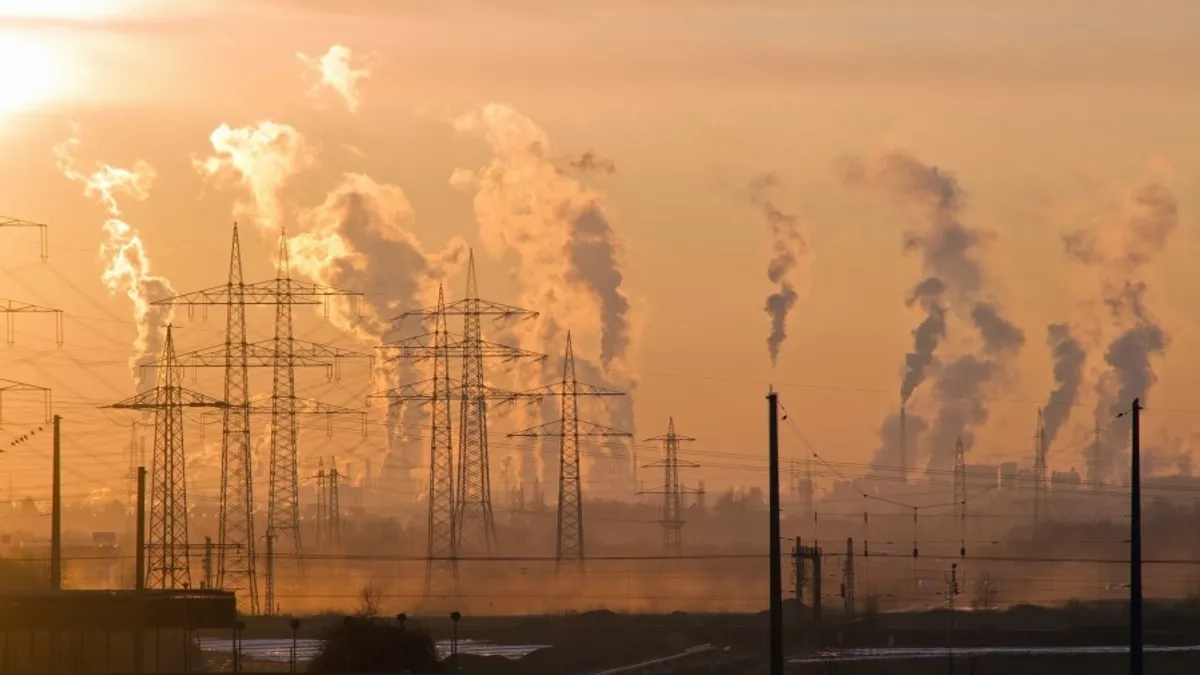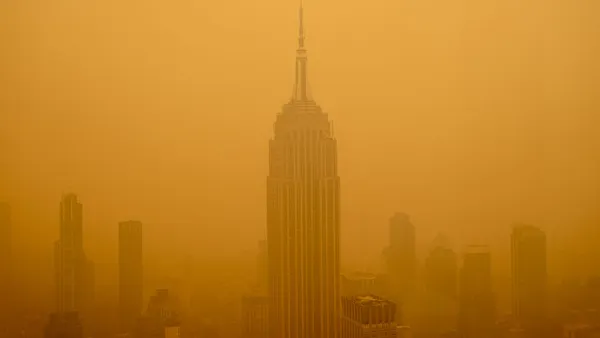Dive Brief:
- Areas in the United States that had high levels of air pollution before the outbreak of the new coronavirus (COVID-19) are more likely to see patients die from the infection during its spread, according to a new report from Harvard University.
- Researchers at Harvard's T.H. Chan School of Public Health analyzed 3,080 counties in the United States and found that an increase of just 1 microgram per cubic meter of fine particulate matter (air pollution also known as PM 2.5) led to a 15% increase in death rates, even when factoring in smoking, the weather and population density.
- For example, if Manhattan had lowered its 17-year particulate matter exposure by a single unit, it may have seen 248 fewer deaths from the coronavirus through April 4.
Dive Insight:
Harvard says this is the first study to make an explicit link between air pollution and COVID-19 deaths, though experts have argued for some time that related respiratory symptoms can be exacerbated by poor air quality.
And this is not the first time an epidemic's worst effects have been linked to high levels of air pollution. The researchers wrote their findings "are consistent with findings that air pollution exposure dramatically increased the risk of death during the Severe Acute Respiratory Syndrome (SARS) outbreak in 2003, which is caused by another type of coronavirus."
City leaders should be concerned about their air quality, based on previous findings that paint a gloomy picture of the level of pollutants. A report earlier this year from Environment America, U.S. Public Interest Research Group (U.S. PIRG) and Frontier Group found that one-third of Americans live in regions that saw more than 100 days with unhealthy air quality in 2018. That finding is similar to one from the American Lung Association, which found roughly 40% of the population live in counties with unhealthy levels of ozone or particulate matter pollution.
This study also warned that governments should continue to regulate air pollution and work hard to cut emissions, even when the worst of the pandemic is over. Cities across the world are seeing a reduction in emissions as people are social distancing and staying home, and researchers said lessons must be learned.
"The results of this study also underscore the importance of continuing to enforce existing air pollution regulations during the Covid-19 crisis," the report reads. "Based on our result, we anticipate a failure to do so can potentially increase the Covid-19 death toll and hospitalizations, further burdening our health-care system and drawing resources away from Covid-19 patients."
To keep up with all of our coverage on how the new coronavirus is impacting U.S. cities, visit our daily tracker.












